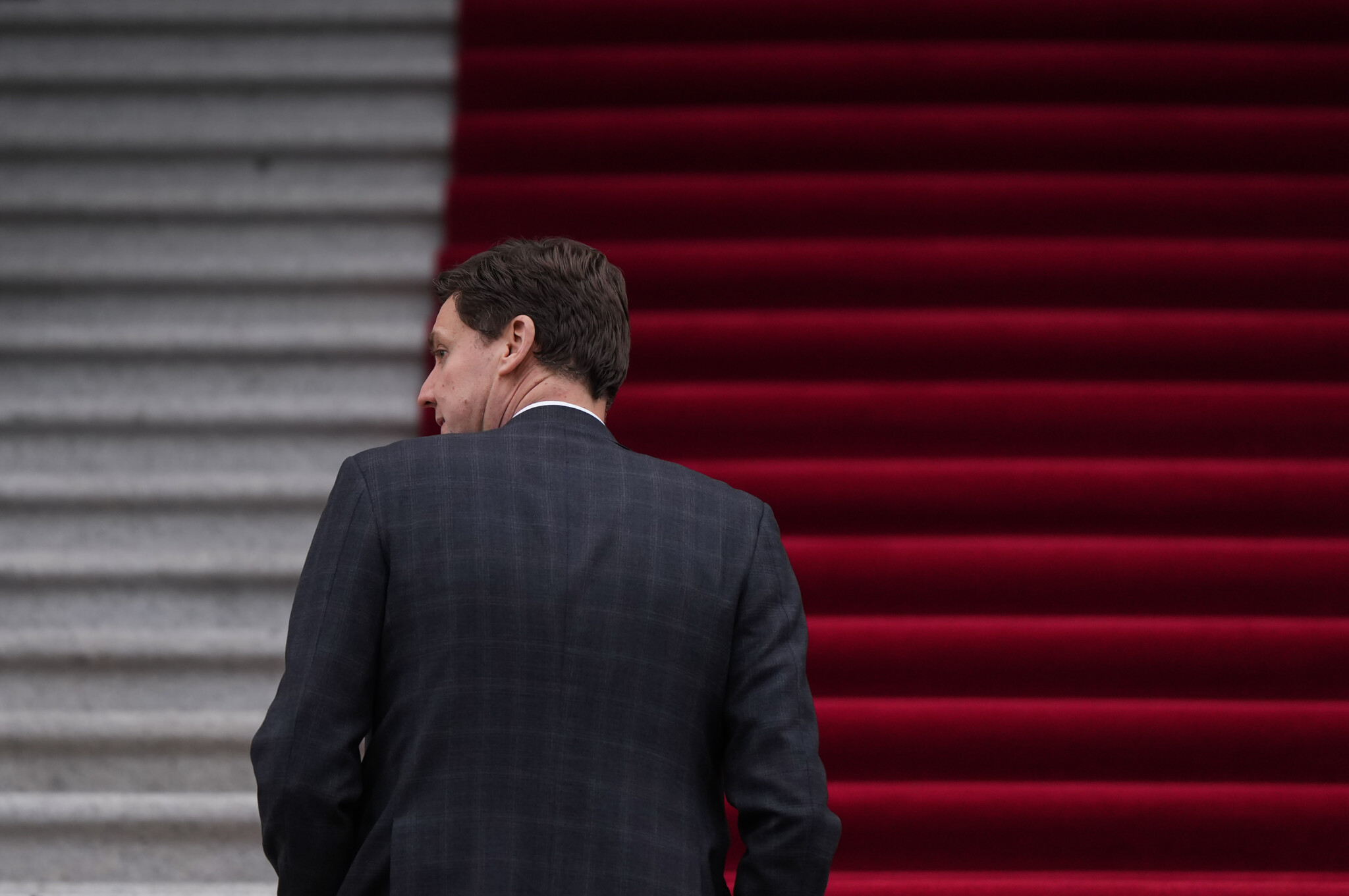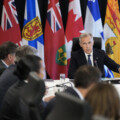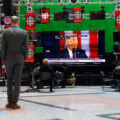David Eby’s guidance of the British Columbia economy has been nothing but a broken compass, and it is pointing home probably too late.
So little time and care has been paid to pursuing prosperity and parsing public finances in his two years as British Columbia’s premier that his Thanos snap of clarity to fight Donald Trump’s tariff threats seems, well, his emergence as a performative method actor.
Like many other leaders near and far, Eby has found in Trump the necessary foil to paper over his brutal balance sheet and veer into territory once considered unthinkable. Surfacing is a whiff of realization that encouraging the private sector has some connection to, say, well-being and well-paying jobs. Accelerating mining permits! Diversifying trade! Creating a “war room”! Buying B.C.! Talking to business leaders!
If only the track record of mismanagement weren’t this enervating to recite.
A $5.7 billion budget surplus he inherited became a record $9.4 billion deficit. By 2029-30, B.C. will be more indebted per capita than Ontario or Quebec. The B.C. NDP in its seven years has more than doubled the provincial debt to $130 billion.
As a province, we have led the country in job creation since 2019—but in the public sector. B.C. leads the country, too, as the weakest in private-sector job growth. The ratio of public-to-private job growth has been five to one.
The per capita income gap with neighbouring Washington State now exceeds $40,000, palpably lopsiding the standard of living. The province is expecting a record number of agricultural foreclosures this year, denting the government’s belief it can build a sturdier local food supply. The CleanBC climate change plan will deliver B.C. to a per capita GDP approximating its 2013 level by 2030.
What little economic growth there has been has come from population growth through immigration and the last vestiges of megaproject construction. Once the best-performing province economically for years under what was then called the B.C. Liberals, B.C. under the NDP is in clear decline.
And Eby can’t really win for losing. In identifying 18 mining projects potentially worth $20 billion for faster approval, he not only upset the Green Party’s two-man caucus weeks after it signed on to support his thin legislative majority but upset First Nations leaders weeks before a new consultation protocol is scheduled to take hold on whether companies can claim land for mineral exploration.
Truth be told, those projects were nearing their finish lines, anyway, and pursuit of them will depend on market projections for the minerals as much as short-circuiting the exhausting rigamarole of regulatory approval.
B.C. has a broader trade portfolio than other provinces. Only about 55 percent of our trade is with America, not the 75 percent nationally. It helps to have the country’s largest port and the shortest shipping lane to China. But in making the claim that it will further diversify, Eby conveniently didn’t mention that his predecessor shuttered a batch of Asian trade posts in 2017—abruptly leaving representatives with bills to pay—and bunked in with Canadian embassies. The province has been slowly reversing course, but trade relationships are anything but instant wins.
There are instant losses, though, in the latest tariffs on steel and aluminum. A Rio Tinto smelter in Kitimat, B.C., employs 1,500 and adds more than $500 million to the economy; it would be the most vulnerable in the mix. B.C. exported about $1.7 billion in fabricated metals to the U.S. in 2024. On the horizon, if our 30-day reprieve from full-on tariffs still consigns us to execution, there will be wallops to sectors critical to urban and rural economies alike: softwood lumber (75 percent exported to the U.S.), steel and aluminum (75 percent), seafood (70 percent of salmon), and plans to export LNG as the megaproject in Kitimat comes onstream.
The gloomiest prospect, and still only one of those anxiety moments, is that the U.S. administration asserts its “economic force” into what Trump referred to last fall as the “large faucet” of B.C.’s water supply. The Columbia River Treaty, the framework of water management between the two countries for six decades, failed to be ratified after 19 rounds of negotiations yielded an agreement last July.
Eby faces his largest test as a premier in unfamiliar terrain. That’s because it would prompt him to scrap his playbook and shift priorities to generating and not just redistributing wealth. His budget this spring could stick to his script as a spending spree of subsidies, income and program supports, deficit disregard, and tariffs on American red states (Napa Valley wines stay in the stores) as the material tactic. Or it could reset the province with reforms to regulations and taxes to make life more affordable and investment more attractive for most everyone.
But that would require a very different Eby than the one we have seen for two decades. He drew praise for a rah-rah speech to the Invictus Games athletes last weekend, encouraging the U.S. participants to understand how Canadians value and have stood alongside them on the battlefield. It was off-script, in pitch, and not something likely devised in his war-room.










